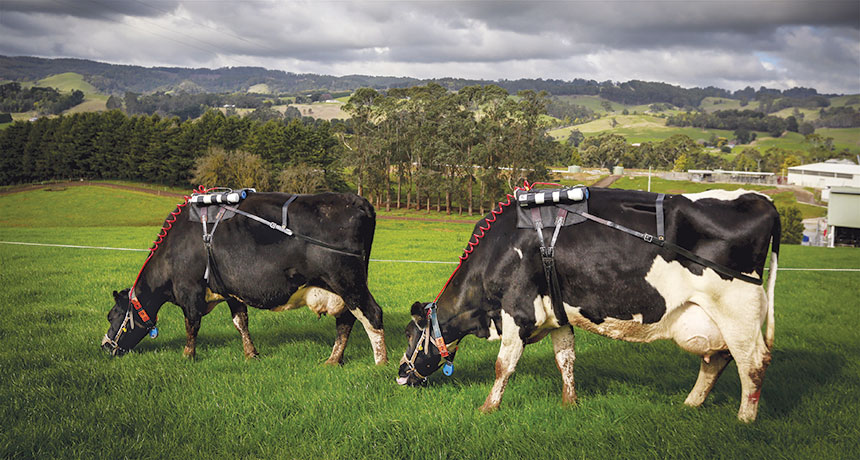Knowing the Extent of the Negative Effects of Methane Gas Produced by Cows on the Environment
Methane gas is a potent greenhouse gas that contributes significantly to global warming. Although methane gas is produced naturally by various sources, including wetlands and termites, livestock farming is one of the largest human-made sources of methane emissions. The primary source of methane emissions from livestock farming is from cows through enteric fermentation, which is the process of digesting food in their stomachs. In this article, we will explore the negative effects of methane gas produced by cows on the environment.
Methane Gas and Global Warming
Methane gas is a greenhouse gas that traps heat in the Earth's atmosphere. Methane is estimated to have 28 times more warming potential than carbon dioxide over a 100-year time frame. Although methane does not remain in the atmosphere as long as carbon dioxide, it has a more significant impact on global warming in the short term. Methane is a significant contributor to climate change, and reducing its emissions is critical to mitigating its effects.
Methane Emissions from Cows
Cows are ruminants, and they have a unique digestive system that allows them to digest tough plant fibers. Cows have four stomachs that break down the plant fibers using microorganisms that produce methane as a byproduct. Methane is then released into the atmosphere through burps and flatulence.
The livestock sector is one of the largest sources of methane emissions worldwide, with cows being the largest contributors. According to the Food and Agriculture Organization (FAO), livestock farming accounts for approximately 14.5% of global greenhouse gas emissions, with cows contributing to 65% of those emissions.
Effects of Methane Emissions on the Environment
The effects of methane emissions on the environment are far-reaching and significant. Methane emissions contribute to global warming, which has many negative effects, including rising sea levels, extreme weather events, and altered weather patterns.
Methane emissions also contribute to air pollution, which can have serious health consequences, particularly for vulnerable populations such as children, the elderly, and people with pre-existing health conditions. Methane emissions can cause respiratory problems, cardiovascular disease, and even premature death.
Methane emissions also contribute to the formation of ground-level ozone, a major component of smog, which can cause respiratory problems and worsen asthma symptoms. Ground-level ozone also damages crops, forests, and other vegetation, affecting both natural ecosystems and agricultural productivity.
Reducing Methane Emissions from Cows
Reducing methane emissions from cows is critical to mitigating the negative effects of climate change. Various strategies can be employed to reduce methane emissions from cows, including dietary changes, improving animal health, and changing management practices.
One strategy for reducing methane emissions from cows is to change their diets. Farmers can feed cows with diets that are easier to digest and produce less methane, such as high-quality forage and supplements that contain fats and oils. These supplements can help improve the efficiency of the cow's digestive system, resulting in fewer methane emissions.
Another strategy for reducing methane emissions from cows is improving animal health. Ensuring that cows are healthy and free from diseases can reduce methane emissions by improving their digestive efficiency. Additionally, farmers can use vaccines to reduce the number of harmful bacteria in the cow's stomachs, which can lead to fewer methane emissions.
Changing management practices can also help reduce methane emissions from cows. For example, farmers can adopt rotational grazing practices that allow grass to regrow, reducing the need for fertilizers and other inputs that contribute to methane emissions. Farmers can also use manure management practices that reduce methane emissions, such as anaerobic digestion, which captures methane emissions and converts them into biogas.
You Must Know it
Methane emissions from cows have significant negative effects on the environment, contributing to global warming
image source : sciencenews.org & nationalgeographic.com



Posting Komentar untuk "Knowing the Extent of the Negative Effects of Methane Gas Produced by Cows on the Environment"
Please Leave a wise comment, Thank you